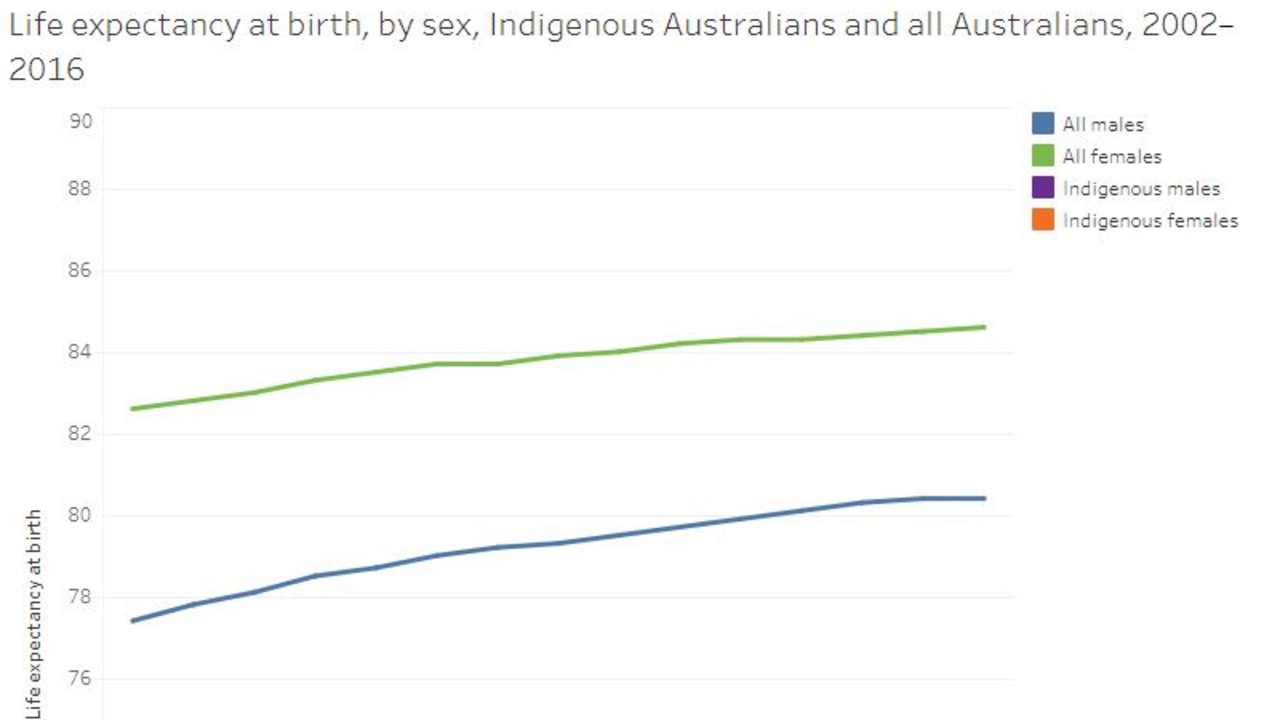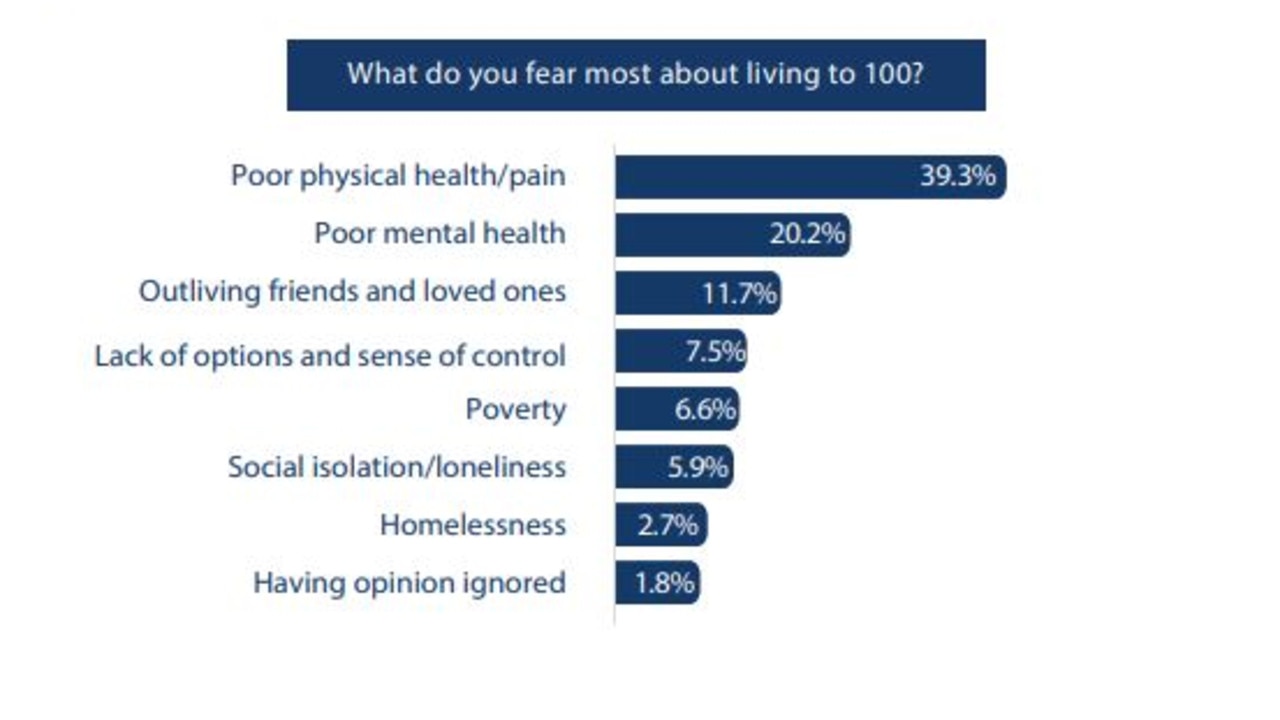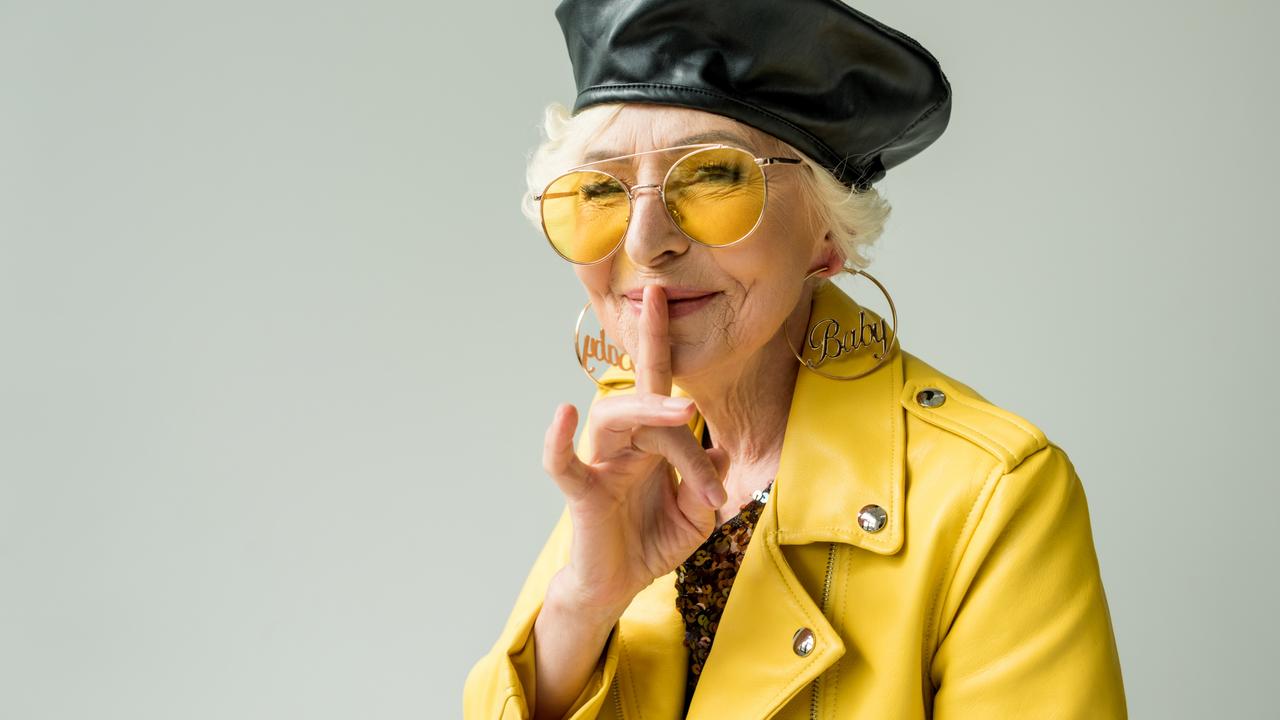The ideal age Australians want to live to
It’s ubiquitous online but millions of Aussies say it misrepresents them. The findings come from the same research which has pinpointed the ideal age to die.
Australians are living longer than ever before, keeping the Queen busy with the pesky task of sending birthday telegrams to their 100th birthday.
But new research has suggested most Australians would rather not reach 100, many fearing they may actually just bore of life.
Older Australians are also annoyed at ageism and at the “OK boomer” meme, claiming it misrepresents their point of view.
Today, there are more than 3.5 million Australians aged over 65.
Australian Bureau of Statistics data shows a boy born between 2014 and 2016 can now expect to live to 80.4 years with a girl born during the same period could reach 84.6 years. That puts Australia in the top 10 most longed lived nations of earth.
Life expectancy in Australia has gone up by 1.7 years for males and 1.1 years for females over the previous 10 years.
There are now thought to be around 4500 centenarians – people 100 years or older – in Australia.

100? NO THANKS
However, research by insurance company Australian Seniors has suggested many people don’t actually relish the prospect of making it to 100.
The firm spoke to 5000 Australians who were 50 plus as part of its 100 Year Lifespan Report. Asked how old they would like to live to, if health and mental decline were not particular issues, the most mentioned age was 92 years, well short of a century.
Putting aside fear of physical and mental breakdown, the top concern about living longer was outliving family and friends. People also didn’t want to be living in poverty or to fall victim to ageism. Some were simply worried living to 100 might be dull.
Three in four seniors also believed that society was simply not equipped to deal with the average life expectancy rising to 100 years, citing pressure on Medicare and the lack of adequate aged care facilities.
Those that do want to live to 100, however, welcomed the idea of spending more time with families and experiencing new things such as travelling to countries they’d never explored.

“We’re living longer than ever before, and this presents both opportunities and challenges for all Australians,” said Australian Seniors spokeswoman Sarah Richards.
“We are hoping to shed light on the issues facing this demographic such as public perceptions, ageism and ultimately shift some of the common misconceptions that exist.”
The firm also added that ageism where people over 50 are ridiculed with suggestions their opinions are outdated, as exemplified by the “OK boomer” meme, “misrepresented” older Australians.
Almost nine in 10 respondents thought ageism was a serious issue and 70.2 per cent that ageism was being perpetuated by society at large.
Another word that should get the chop is “retired”, the research has suggested. Given so many people of retirement age are likely to continue to contribute including going back into the workplace, the term seemed unnecessarily final and redundant, some claimed.

On the bright side, seniors believed technology would make their lives easier and help them to remain healthy with remote access to doctors and social media keeping them connected. At least 60 per cent see a future where self-driving cars will keep them on the road.
But they may well go through a third quarter life crisis following retirement with a third saying they already have. This can include feelings of resentment and boredom with their lot. Yet three quarters of people think it is a positive process to go through.

Nick Haslam, a Professor of Psychology at The University of Melbourne, said the three-quarter life crisis was a way to define a period of transition.
“The three-quarter life crisis isn’t usually a time of despair. It’s more a turning point when people in their late 60s or early 70s reassess their priorities for life with the wisdom and perspective that comes with maturity,” Prof Haslam said.
“People may be troubled or in a rut when they enter the crisis period, unsure of the value of their work or jaded with the routines of their life, but they generally come out of it with a refreshed sense of possibility.
“This generation is redefining what ageing means: they see being a senior as a time for positively engaging with the world rather than gradually disengaging from it.”
When the time does come, older Australians want to exit stage left on their own terms.
Almost 87 per cent said euthanasia should be a choice for seniors who are suffering and meet strict legislative requirements.
Euthanasia, the act of someone legally ending another person’s life with their consent, is illegal in Australia. However, assisted suicide, where someone can help a person end their own life, is legal in Victoria and will be in Western Australia from next year.



